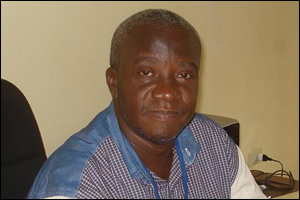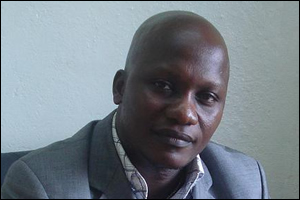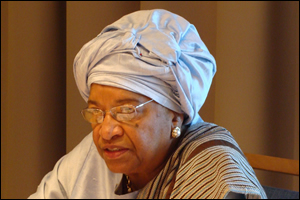The Rising Land of Investment Opportunities


History
Liberia, "land of the free," was founded by free African-Americans and freed slaves from the United States in 1820. An initial group of 86 immigrants, who came to be called Americo-Liberians, established a settlement in Christopolis (now Monrovia, named after U.S. President James Monroe) on February 6, 1820. Thousands of freed American slaves and free African-Americans arrived during the following years, leading to the formation of more settlements and culminating in a declaration of independence of the Republic of Liberia on July 26, 1847.
A military-led coup in 1980 overthrew and killed President they killed William R. Tolbert, Jr., who had been president for nine years, and later executed a majority of his cabinet. This marked the beginning of a period of instability that eventually led to two civil wars that left hundreds of thousands of people dead and devastated the country\'s economy. A peace movement called Women of Liberia Mass Action for Peace was instrumental to the end of hostilities in Monrovia. Thousands of Christian and Muslim women staged silent protests and forced peace talks in Ghana. They staged a sit in outside of the Presidential Palace, blocking all the doors and windows and preventing anyone from leaving the peace talks without a resolution. The women of Liberia became a political force against violence and against their government. As a result, the women were able to achieve peace in Liberia after a 14-year civil war and later helped bring to power the country\'s first female head of state.
Government and Political Conditions
Under the leadership of President Ellen Johnson Sirleaf Liberia’s and Africa’s first democratically elected female head of state, this country has been working together with international partners to ensure that stable progress is made towards consolidating a peaceful society and reviving its economy. Five years afterwards, the government’s strong economic and political reform efforts have been recognized by the local and international community. As the country’s nascent democracy thrives, another presidential and general election is scheduled to be held in October 2011.
Economic Situation
With a relatively stable political environment, Liberia’s strong postwar economic recovery has continued. The Government’s macroeconomic framework, projects GDP growth to average 7.7 percent per annum for the 2010-2012, driven largely by new investments in key sectors including mining, agriculture, and infrastructure.
In October of this year, The African Development Bank approved a debt relief package for Liberia, noting that the country had effectively met the conditions and requirements under the Heavily Indebted Poor Countries (HIPC) Initiative and the Multilateral Debt Relief Initiative (MDRI).
Following the approval, Liberia will receive USD 237.2 million debt relief under the HIPC initiative, equivalent to 16.7 percent of all multilateral assistance to the country. In addition, under the MDRI, the African Development Fund will relieve Liberia of its USD 19.56 million debt obligations.
Liberia qualified for HIPC and MDRI debt relief having demonstrated good progress in the preparation and satisfactory implementation of a Poverty Reduction Strategy; maintained macroeconomic stability; strengthened economic governance through improved public financial management and shown a high degree of transparency and accountability in the extractive industries; implemented social sector reforms; and developed and implemented a credible debt management strategy.
Investment
The IMF has said that Liberia\'s economy is set to expand more than 6 percent this year from 4.5 percent in 2009, it has also stated that foreign direct investment commitments to Liberia have increased sharply following the ratification of several iron ore and palm oil concessions.
Several legislative acts to support private sector development and tackle corruption have been approved and the government has passed a slew of new laws to bolster investment, including Liberia\'s first fully fledged commercial code, and has set up a commercial court and set out a new business law framework.
“Improving the business climate, giving greater security for commercial transactions, and inspiring greater confidence in Liberia as an investment destination”
Liberia is set to see a dramatic improvement of its economy as a major global oil company will embark on a large oil drilling project in the country. However, Ms. Johnson Sirleaf has said that to avoid depending too much on oil or any other single sector, her government is focusing on attracting investors in areas from rubber to mining, and from countries from Asia and Europe to the Americas. "We\'re going for diversity," she said. On the oil front, she added, Liberia is studying countries including Norway as models for sustainable resource management.
“Improving Liberia’s standing in the region as a potential major source of energy”
The president has said Liberia has logged annualized economic growth of 6.5% and attracted some $16 billion in foreign investment in the past 4½ years, and anticipates double-digit growth in 2011. According to President Ellen Johnson-Sirleaf, Liberia is on the way to recovery, and all things being the same, or slightly improved, it will become a middle-level income country by 2030.
Government of Liberia
The National Investment Commission


 Sando J. MooreEditor in Chief ImagesMagazine
Sando J. MooreEditor in Chief ImagesMagazine Mr. Amadu A. NecklesGeneral Manager & CEO1st Class Enterprise
Mr. Amadu A. NecklesGeneral Manager & CEO1st Class Enterprise Mr. George Haddad CEO HGICEOHaddad Group International
Mr. George Haddad CEO HGICEOHaddad Group International H. E. Ms. Ellen Johnson SirleafPresident of the RepublicLiberia
H. E. Ms. Ellen Johnson SirleafPresident of the RepublicLiberia Buchanan RenewablesEnergy
Buchanan RenewablesEnergy Pierre, Tweh & AssociateLegal Services
Pierre, Tweh & AssociateLegal Services ReDen IncReal Estate
ReDen IncReal Estate Krystal Ocean View HotelTourism
Krystal Ocean View HotelTourism LBDI- Liberia Bank of Investment and DevelopmentBanking
LBDI- Liberia Bank of Investment and DevelopmentBanking Haddad Group InternationalTrade & Industry
Haddad Group InternationalTrade & Industry Renaissance HotelTourism
Renaissance HotelTourism 1st Class EnterpriseTransport
1st Class EnterpriseTransport